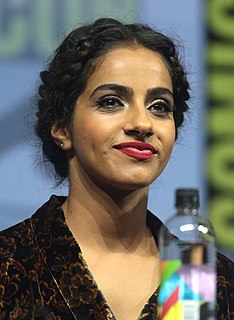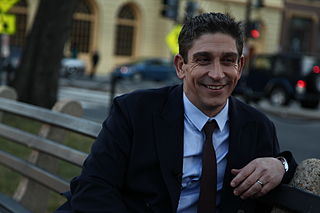A Quote by Mandip Gill
I look for a great story. One that I would like to watch, or tell, or that I think needs to be told, because I know that, as an actress, I have a responsibility to tell certain stories and to tell them properly.
Related Quotes
The very act of story-telling, of arranging memory and invention according to the structure of the narrative, is by definition holy. We tell stories because we can't help it. We tell stories because we love to entertain and hope to edify. We tell stories because they fill the silence death imposes. We tell stories because they save us.
Vera said: 'Why do you feel you have to turn everything into a story?' So I told her why: Because if I tell the story, I control the version. Because if I tell the story, I can make you laugh, and I would rather have you laugh at me than feel sorry for me. Because if I tell the story, it doesn't hurt as much. Because if I tell the story, I can get on with it.
I honestly would tell anyone young to start looking at stories and learning story, because I think that’s the next step after people go, ‘OK, I’ve had enough of that improvisation, I’ve had enough of those short comedy bits. Tell me a story, tell me a more complex story, something that lasts and maybe has a little more meaning to it.’ Don’t ever look at what’s happening now; look at what’s coming next.
If I had a daughter, I would tell her certain things. I would tell her that it’s great to be smart, really smart - that being smart makes you strong. I would tell her that emotions are powerful, so don’t be afraid to show them. I would tell her that some people may judge you on how you look or what you wear - that’s just how it is - but you should keep your focus on what you say and do. I would tell her that she may see the world differently from boys, and that difference is essential and good.



































